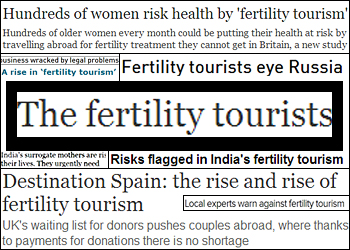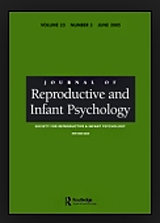Overseas fertility treatment
Tue, 19 Mar 2013 16:33:00 GMT
Research shows health professionals ‘cool’ on legal controls of risk-laden fertility treatment
PROBLEMS in accessing donor sperm and eggs at home appear to be behind a reported increase in the number of UK citizens who seek fertility treatment abroad, despite the fact that this is widely seen as risky. Now, a team of academic experts, including a University of Huddersfield professor, have investigated the phenomenon and analysed the attitudes of health professionals.
The researchers found little support for legal controls on cross-border fertility treatment, but UK-based clinicians stressed the importance of checking out overseas fertility clinics in order to make sure they meet UK standards and pose minimal risk to patients.
Eric Blyth, who is Professor of Social Work at the University of Huddersfield and an acknowledged expert on issues such as infertility and surrogacy, is a member of a six-strong research team, based at a range of UK universities, which carried out a study into the growth of overseas travel for fertility treatment.
The group has now described its first phase of findings in an article in the 2013 edition of the Journal of Reproductive and Infant Psychology.
There are few robust statistics on the numbers travelling overseas for egg or sperm donation, states the article, but it concludes that “there would appear to be growing international brokering in gametes and overseas clinics, largely driven by the donor shortage in the UK”.
Now further research is needed into how professionals and patients “navigate this form of transnational reproduction”.
 Concerns expressed
Concerns expressed
The article claims that media representations of what is often dubbed “fertility tourism” have many of the hallmarks of a “classic moral panic”. Despite the fact that IVF is now widely accepted as a legitimate form of reproduction, people who travel overseas to receive it are frequently seen as “deviant users” of the technology, sometimes depicted as selfish “baby shoppers”. Sensationalist examples of older mothers and multiple pregnancies are used to bolster such views.
“Those who cross borders for treatment are frequently portrayed as illegitimately challenging nature, or “playing God”, in wanting to “design” their babies by selecting their sex or seeking out particular physical or intellectual abilities,” states the article.
Professionals in the field take a more complex, nuanced view, but they often represent cross-border reproductive travel as risk-laden.
Concerns expressed include the control of quality and safety standards overseas; the need to protect patients against incompetence and negligence; an alleged lack of psychological support in some clinics; and inadequate information about possible health risks to patients, donors or offspring.
The article stresses that there is no strong evidence to support these fears and that many patients travelling for fertility treatment outside the UK – mostly to European destinations – felt that they had received a better quality of care.
None of the clinicians surveyed by the research project felt that in an age of easy and affordable travel there would be any purpose in the UK introducing restrictions on overseas fertility treatment, even if it was a procedure that was not legal in Britain. This is because it would be impossible to prove where a child was conceived.
 The article’s authors state that: “In the absence of formal international regulation of standards and procedures, many participants reflected that professionals had a key role to play in educating people about possible risks and to ensure that patients were aware of the issues that they need to consider when having treatment abroad.”
The article’s authors state that: “In the absence of formal international regulation of standards and procedures, many participants reflected that professionals had a key role to play in educating people about possible risks and to ensure that patients were aware of the issues that they need to consider when having treatment abroad.”
- The article, What are you going to do, confiscate their passports? Professional perspectives on cross-border reproductive travel, by Lorraine Culley, Nicky Hudson, Eric Blyth, Wendy Norton, Allan Pacey and Frances Rapport, is in the Journal of Reproductive and Infant Psychology (2013) [pictured] DOI:10.1080/02646838.2012.762084: http://dx.doi.org/10.1080/02646838.2012.762084







